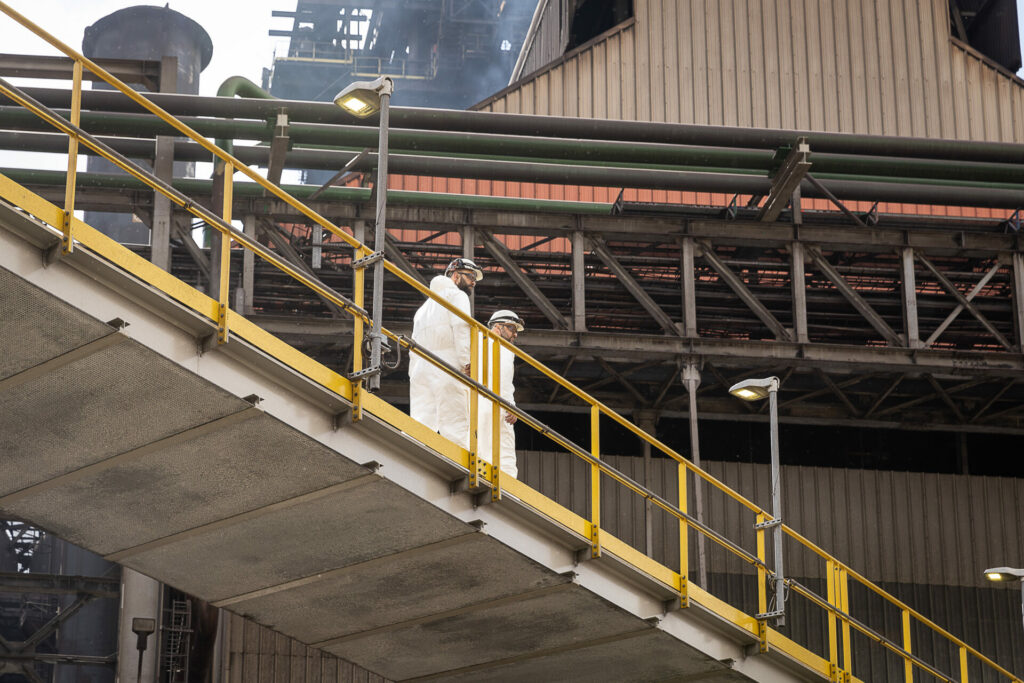Analysts are becoming increasingly alarmed by the disintegration of Belgium's industrial sector, as high energy prices and weak global demand continue to wreak havoc on a crucial pillar of the Belgian economy.
Experts have repeatedly warned of the growing dangers facing Belgium's industry since Russia's full-scale invasion of Ukraine in February last year sent energy prices soaring.
Their fears were dramatically amplified by a report published last week by Eurostat, the EU's official statistics office, which found that Belgium's year-on-year industrial production fell by 14.0% in September this year: the second largest decrease in the bloc after Ireland.
Even more worryingly, Eurostat found that Belgium experienced the largest monthly decline in industrial production in the EU, with output dropping 3.2% from August to September. This is more than three times greater than the net EU decrease of 0.9%.
'The risk of relocation exists'
High energy prices are a key reason for the bloc's overall industrial decline. However, industry leaders attributed Belgium's especially poor performance to the government's failure to pass protectionist measures similar to those introduced in neighbouring countries, most notably in Germany.
"The existing policies are not sufficient to preserve the competitiveness of our industry compared to our neighbouring countries," Febeliec, the Federation of Belgian Industrial Energy Consumers, noted earlier this year.
"This puts industrial activity and its future development in our country at risk, and therefore also employment, added value and trade balance."
Other experts have explicitly warned that, without substantial government intervention, Belgium's industries will simply begin to offshore production. Such a scenario would pose a major threat to the Belgian economy, with industrial production currently contributing roughly 20% to Belgium's annual GDP.
"We are facing high costs and low demand," Gert Verreth, a spokesperson for Essenscia, the Belgian Chemical Industry Federation, told De Morgen. "Many plants are running at half power. Everyone understands that this cannot continue. And yes, the risk of relocation of the sector unfortunately exists."
An industrial revival?
Verreth's comments have been corroborated by other industry analysts. One recent survey of European economic research institutes found that a significant majority expected their countries to experience "sustained deindustrialisation" over the coming years. 60% specifically claimed that high energy prices would lead to the "offshoring of energy-intensive industries to other non-EU countries."
The study, conducted by the German Economic Institute, also urged European policymakers to enact "a revival of industrial policy" to "alleviate the immediate dangers of deindustrialisation" in Europe.
Related News
- Belgium's economic forecast revised downwards for 2023-24
- Europe is not deindustrialising, EU official claims
Similar measures have been called for by Belgian Prime Minister Alexander De Croo, who recently urged the EU to implement a 'European Industrial Deal' to protect the continent's manufacturing base.
De Croo added that the imagined Industrial Deal would "mirror" the Inflation Reduction Act (IRA), which provides up to $369 billion in government subsidies to stimulate green investment and consumption in the US.
"With their Inflation Reduction Act, the United States is holding out a mirror to Europe," De Croo said. "America is not a country of sticks but of carrots [...] It's time to change gears in Europe."


